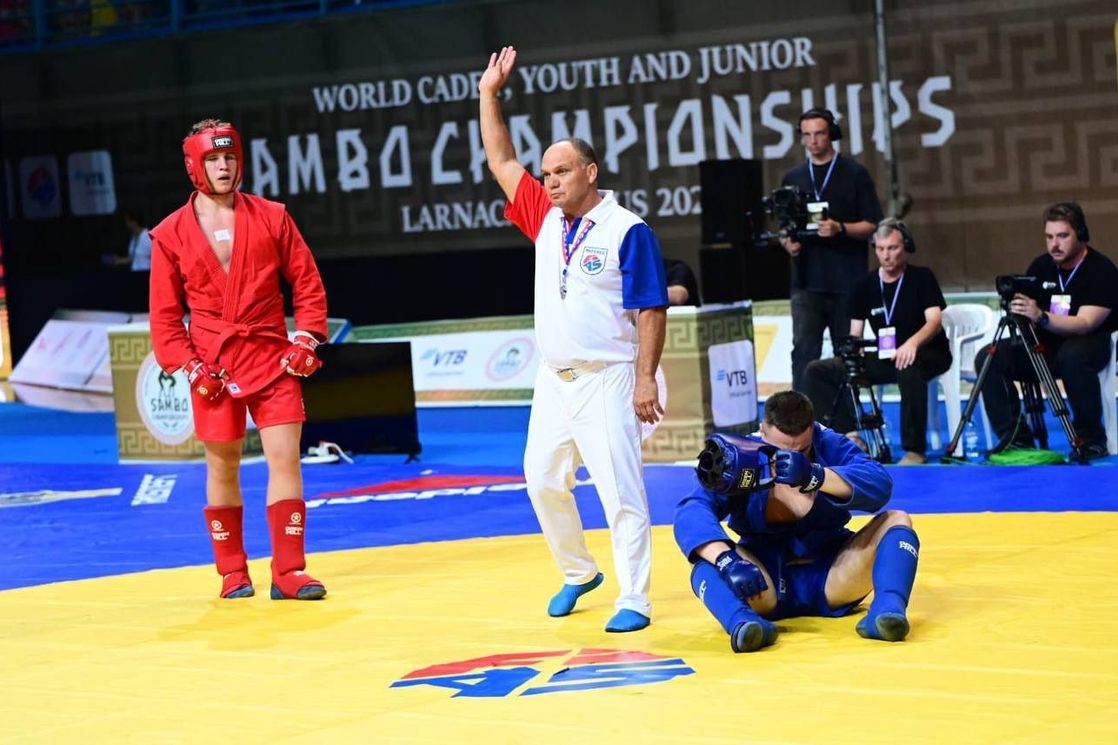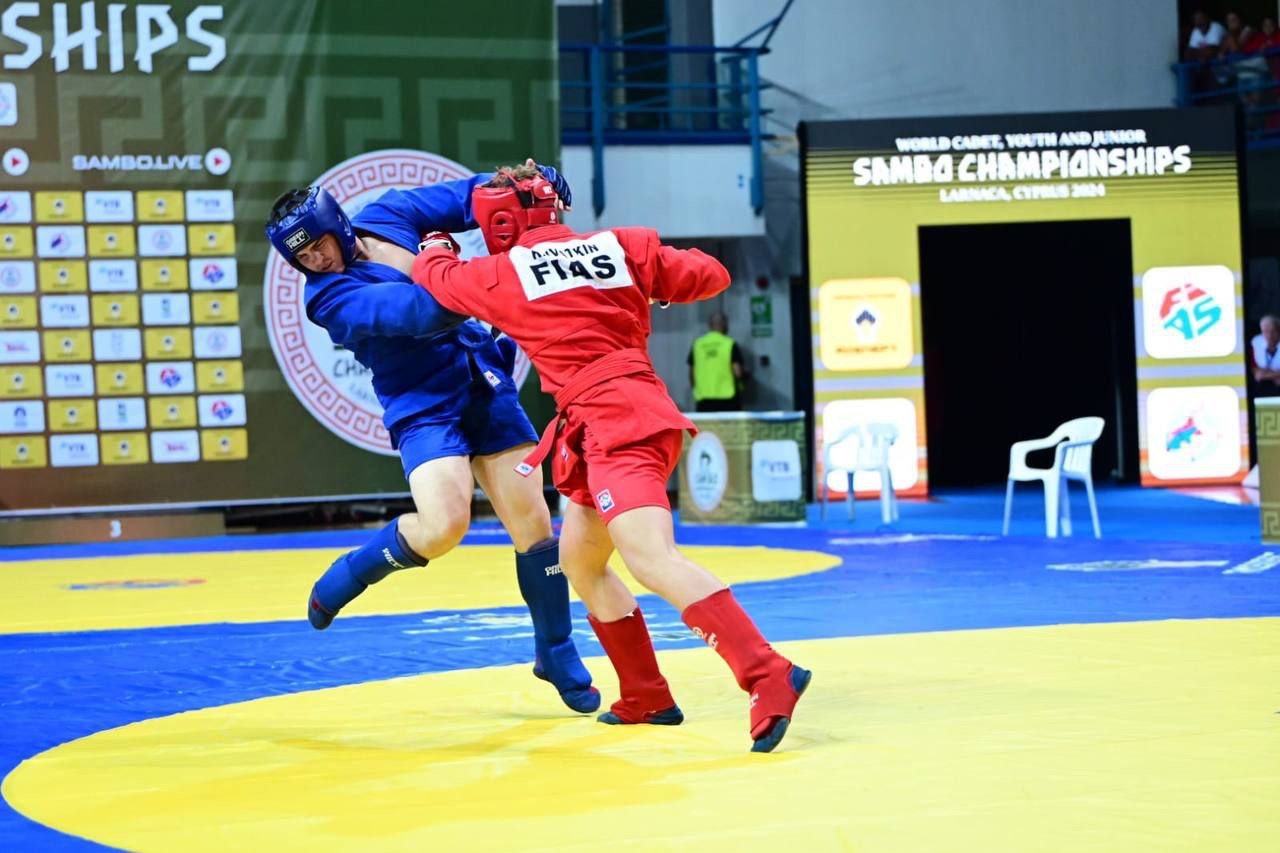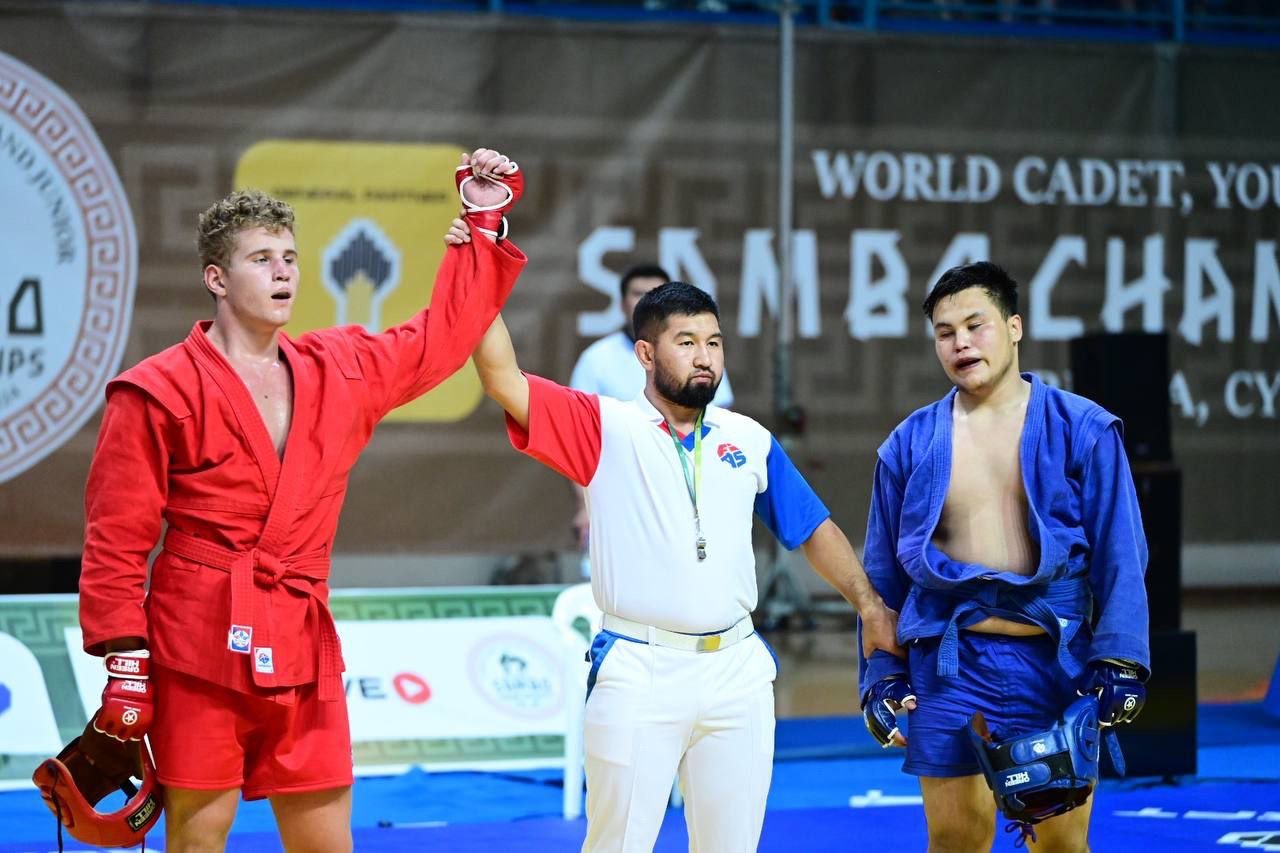Interview with Georgy Khvatkin, Y1 Student of ICEF, World Cadet Youth & Junior Sambo Champion
.jpeg)
Georgy, our congratulations on winning the gold! We are proud to have you among us. Why ICEF? What drove you to choose to study here?
It was a well-considered choice. I learned about ICEF from my parents. They both did a second degree after completing their philological studies at Moscow State University. Dad got one in Law, and mom in Economics. Mom has an excellent knowledge of Economics, it was she who inspired us – me and my twin sister Katya – to choose Economics as our future career. So, having learned as much information as we could about ICEF and the prospects before its students, we thought it’d be great for us to study in English and do a double degree. All other universities, we didn’t even consider them. I and Katya spent four years while school students preparing for the admission and the State Unified Exam.
We started our seventh grade in the Russian-British School Algorithm in Moscow, and we both got gold medals for excellent academic performance from it. My sister is my best and unconditional friend. We are in the same group at ICEF, and by the way she’s a synchro swimmer and holds the master sportsman title, too.

It must have been an intense start for you in ICEF. Which courses seem to be most interesting?
All courses. They all got me interested. Mostly thanks to the excellent teachers. They come across as true professionals and I deeply appreciate the honour of being their student. Let me mention here Prof. Yaroslav Lyulko, who teaches Probability and Statistics. His course is what I think opens up huge prospects for me as a student.
My first few days in ICEF were, indeed, intense, especially given my demanding sporting schedule. Another thing that made it challenging is that there are topics I’m completely new to. But luckily, I can get help from teachers and friends. I’ve been doing good so far.
My group is simply the best (we all say this I suppose). The people I study together with are great, we have many shared interests. My experience is that ICEF is like one big family, with teachers helping students and junior undergraduates getting help also from senior ones.
Studying in English turned out easier than I thought. I’ve been working hard to learn English since early childhood, and the English crash course that we did at ICEF in the early days of September had been of great help.

Your sports career, why did you start practicing Sambo and how regularly do you train?
I did swimming first. My dad plays water polo all his life and my sister practices synchro swimming – the water sports have been in our lives for as long as I can remember. Then, when I was 6 or 7, I became a fan of Jackie Chan action movies and martial arts at large. But for some reason I told dad I wanted to be a wrestler and he signed me up for Sambo lessons.
My normal routine – when I don’t train for competitions – is 4 to 5 drills a week. But when I have a competition coming up, two months before it I train twice as intensively as that. I did two to three drills a day during the month before the World Cadet, Youth and Junior Sambo Championship in Larnaca, and that included running workouts.
You train in the legendary Sambo-70. Is it the only club you train in?
I train in different clubs. This is how I can experience the versatility of grips and set-ups and improve my skills. My main coach is Nikolay Yelesin, an Honored Coach of Russia and top dog in MMA and combat sambo, and my other coach is Ali Piduriev of Boxing Progress Center. Sometimes I join Professor Gloriozov Club for wrestling days, where I have as coach Denis Davydov.
Was there ever a time you wanted to quit Sambo?
Yes, a couple of times. It was just all coming down on me – the study and homework piling up, the disappointing defeats in competitions – but thanks to my family I was able to overcome those difficult moments. I am incredibly grateful to them for their support.

Who are your sport idols?
I don’t really like the word “idol”. Being an idol sounds like being some kind of a deity. There are role models I look up to, and one of them is Fedor Yemelianenko, a true legend of the Russian sports and a four-time world champion in combat Sambo. Also, I am very impressed by the stylish and effective takedowns by Denis Goltsov, another famous athlete. I follow all his performances, trying to adopt some of his techniques.
You said you trained two or three times a day during your first eight weeks in ICEF. Did you still have enough time for study? How do you manage to combine activities as intense as these?
Combining sport and college isn’t easy. Drills now come second to studying, so it’s never a fixed sporting schedule: sometimes I train harder in the morning or may have to reschedule workouts to a later time in the evening. Whenever I have a test coming up, I cut down on my workout time. And luckily, I have my parents, sister and friends to turn to whenever I’m in need of help academically.
Studying is in many ways like sports. There’s always a huge amount of work to be done by students and athletes on their own. It’s largely about being a good time manager: if one schedules their time in advance, not only will they cope with their daily routines, they will squeeze in time to rest and refresh.
I made it a habit to schedule for every new week to combine studies and drills.
For the time being, I train less than usual. But it won’t be long before I have to increase the workout time again and give up much of my personal life for sport. It’s usually not more than once a month[О1] [О2] that I have the time to meet with friends. This year unfortunately I wasn’t able to join any of the student organizations here in ICEF because of my tough training schedule in the runup to the World Championship. Hopefully, I’ll be able to join some next year.
As for upholding the sporting honor of ICEF, you can always count on me.
Have you ever been in a situation, out of the sport, where you had to use your combat Sambo skills?
I have been in situations where people sought conflict with me and where I saw them trying to make other people angry. But it is my firm belief that it is he who knows how to resolve conflicts through communication, not by using physical force, who is the strongest. Pro athletes should never use their skills anywhere out of the sport.
I don’t know of any student champion who are fine resting on their laurels. What’s coming up next?
The Moscow Championship and the Russian Championship qualification. In case I win the latter, I can compete in the World Championship again. I’ll be in the junior category for two more years and there’s a serious preparation to be done before I can compete with venerable athletes of the older age group. On the academic side, I have my midterms coming up. I hope I’ll be able to get good grades and continue my academic journey.
Thanks, Georgy. We hope you have massive success in whatever you do!